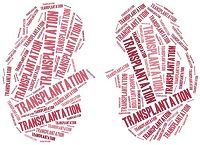Article
New Transplant Drug Reduces Rejection Risk
Author(s):
A 7-year followup study of a drug approved in 2011 shows it has better results than cyclosporine in kidney patients. But it comes with a warning.

Bristol-Myers Squibb announced 7-year follow-up results on belatacept (Nulojix) a drug meant to prevent rejection of transplanted kidneys. It is only for patients who have evidence of past Epstein-Barr virus infection. Such infections are particularly risky for transplant patients.
In study results reported today at the American Transplant Congress in Philadelphia, PA, long-term follow-up of patients in the BENEFIT trial showed a 43% relative risk reduction of death or graft loss at 7 years, with a survival benefit of 52% observed as early as 5 years after a transplant.
The drug “demonstrated statistically significant and sustained difference in renal function of Nulojix-versus cyclosporine-treated patients,” the company said in a news release.
The safety profile of the drug is similar to that of cyclosporine.
Nulojix is the first selective T-cell co-stimulation blocker indicated in combination with basiliximab induction, mycophenolate mofetil and corticosteroids to prevent organ rejection in adults who are seropositive for exposure to Epstein-Barr virus who are receiving a kidney transplant.
The drug got US Food and Drug Administration (FDA) approval for that use in June 2011 though it comes with a black box warning.
It is not recommended for use with other transplanted organs and has a risk of patients developing lymphoproliferative disease and JC virus-associated progressive multifocal leukoencephalopathy as well as polyoma virus nephropathy.
The study involved 666 renal transplant recipients and included those who got their organs from either deceased or living donors.
Patients who had HIV, hepatitis C or B, and other evidence of certain viral infections were excluded.





